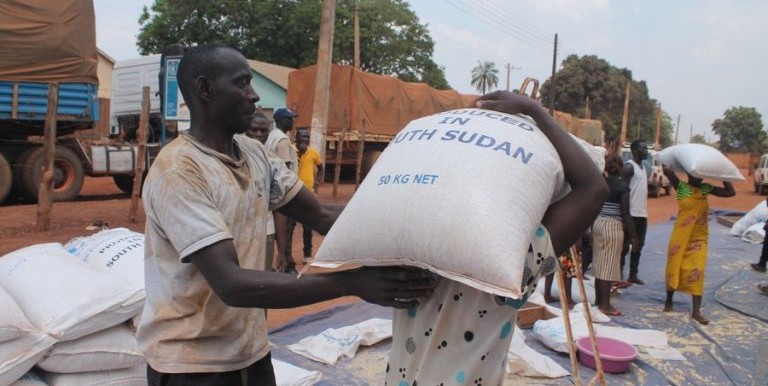The United Nations World Food Programme (WFP) said Thursday it is cutting food rations for nearly 700,000 refugees and internally displaced people in South Sudan due to significant funding gaps.
In a press statement, WFP said those affected include some 440,000 internally displaced people in Bentiu, Bor, Juba, Malakal, Mingkaman, and Wau as well as nearly 260,000 refugees from the Democratic Republic of the Congo, the Central African Republic, Ethiopia, and Sudan, who rely on WFP assistance to meet most of their food needs.
Matthew Hollingworth, WFP Country Director in South Sudan, said the refugees and IDPs will start receiving 50 percent of a full ration beginning this month.
“It is a very painful decision to take from the hungry to give to the starving, but this is the reality; because of the alarming rise of food insecurity in remote locations, WFP has to reduce the size of its rations in some communities, including refugees and internally displaced people, who are in a less precarious situation,” he said.
WFP said its resources were overstretched in South Sudan at a time when levels of food insecurity are at their highest and donors are grappling with the economic impact of Covid-19.
“We must try to save the lives of those likely to face famine during the lean season if they do not receive sufficient assistance. WFP simply does not have enough resources to provide full rations to all of those in South Sudan who rely on our assistance to survive,” Hollingworth said.
WFP said it urgently needs 125 million US dollars for its food assistance operations for the next six months to provide food in sufficient quantities, including larger food rations for refugees and the displaced.
According to WFP, these cuts are likely to lead to higher rates of malnutrition and anaemia, stunted child growth, and people resorting to survival strategies.




